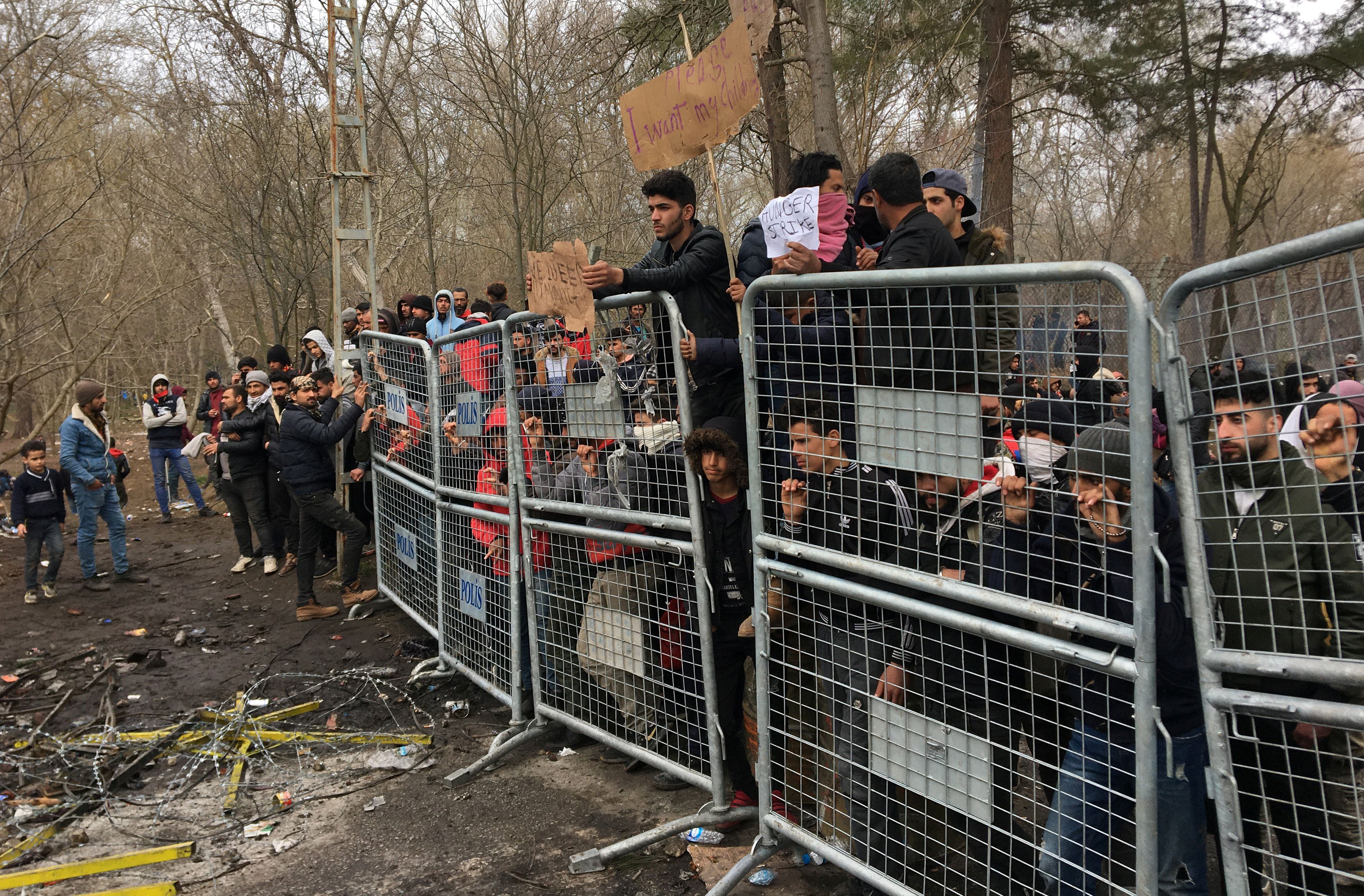October 19, 2020
Build that wall... in Greece: The Greek government has finalized plans to build a wall along part of its eastern border with Turkey to prevent migrants from staging mass crossings to reach European Union territory. The move follows a March standoff between Athens and Ankara when Turkish President Recep Tayyip Erdoğan declared he was "opening" the border because Turkey could no longer cope with so many migrants fleeing Syria. Since then, migrant flows via Turkey to the EU have declined dramatically due to the coronavirus pandemic and tougher policing, but Greeks and Turks (as always) remain at odds over what to do with the migrants: Greece wants Turkey to do more to stop migrants crossing, while Turkey says Greece is sending back migrants who arrive at Greek islands in the Aegean Sea. As the two sides continue to bicker over this issue — and over energy rights in the Eastern Mediterranean — the only thing that's clear is that Greece won't demand that Turkey pay for the wall.
China's economic recovery: As most of the rest of the world grapples with a pandemic-fueled recession, the country where COVID-19 began is doing quite well. China's GDP grew 4.9 percent in the third quarter compared with the same period in 2019. That's slightly less than expected but still an impressive feat for a country whose economy contracted by a whopping 6.8 percent during the first quarter as China shut down the entire city of Wuhan and halted most economic activity to contain the coronavirus. Can Chinese consumers sustain the economic recovery — until now largely driven by a massive government stimulus program for state-controlled firms and online shopping — by spending more on brick-and-mortar retail and services? In the longer term, we're watching to see how the world's second largest economy will deal with long-term declining demand for its products in many of its major export markets.
A secret meeting in Damascus: The Wall Street Journal has reported that Kash Patel, the Trump administration's top counterterrorism official, recently traveled to Syria for secret talks with an unidentified official representing the Bashar al-Assad government. If true, it's the first known meeting between a senior US official and the Assad regime since the start of Syria's civil war a decade ago. The US halted diplomatic relations with Syria in 2012 in response to Assad's brutal crackdown on Syrian protesters and civilians. Patel's reported goal in Damascus was to win the release of some or all of (at least) six Americans held hostage by Assad's government. Trump's supporters will say this effort is a reminder that the president will talk with anyone to advance US interests, while his critics will call it a cynical last-minute attempt to boost his re-election chances. But we're watching this story, not to judge its political motivations or implications, but to see whether these talks can reunite hostages with their families.More For You
President Trump has transformed the presidency—and the world—in 12 short months. Harvard’s Stephen Walt joins Ian Bremmer on the GZERO World Podcast.
Most Popular
Think you know what's going on around the world? Here's your chance to prove it.
Members of law enforcement gather, as tensions rise after federal law enforcement agents were involved in a shooting incident, a week after a U.S. Immigration and Customs Enforcement (ICE) agent fatally shot Renee Nicole Good, in north Minneapolis, Minnesota, U.S., January 15, 2026.
REUTERS/Ryan Murphy
This last week has provided a distillation of US President Donald Trump’s view on how American military might should be deployed at home and abroad.
Pro-government supporters holding a Venezuela's flag attend a rally against U.S President Donald Trump in Caracas, Venezuela August 14, 2017.
REUTERS/Ueslei Marcelino
When they meet at the White House today, Venezuelan opposition leader and Nobel Peace Prize winner María Corina Machado will seek to convince US President Donald Trump that it was a mistake to back Delcy Rodríguez as interim leader of Venezuela.
© 2025 GZERO Media. All Rights Reserved | A Eurasia Group media company.
